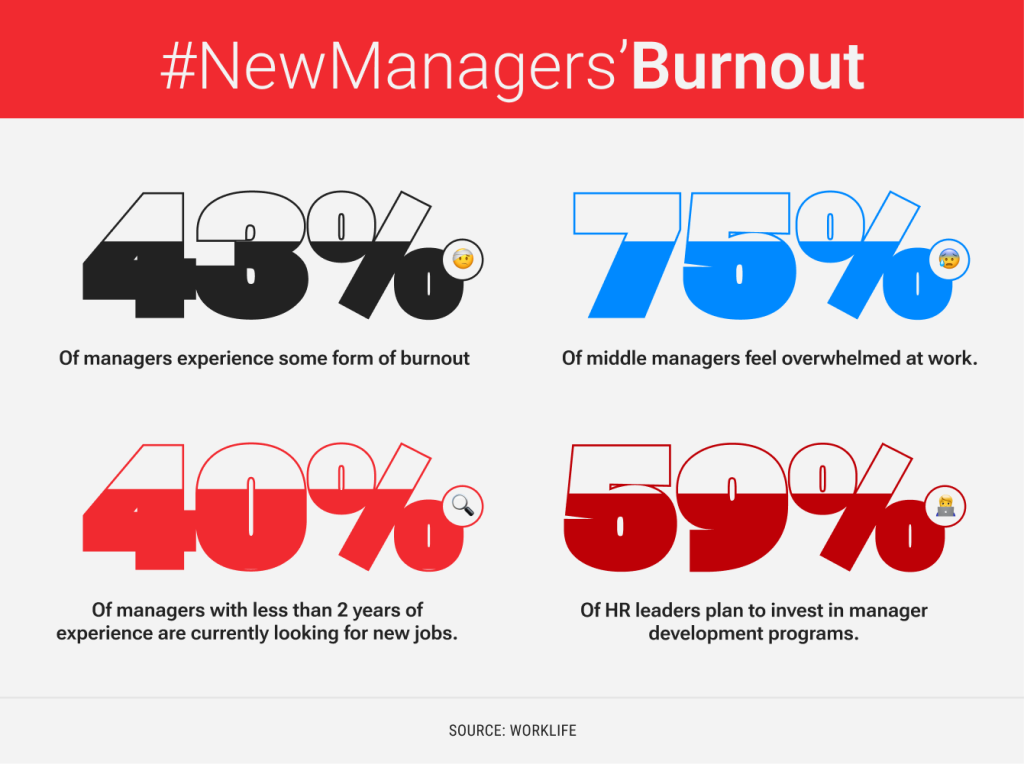Having a diverse team brings many benefits to your organization, as well as your customers. As your teammates demonstrate their talent and thrive in their role, promotions enter the conversation. However, for people to get comfortable and be able to show off their abilities and leadership skills they need support.
It sounds unexpected, but think about it. You start a new role, perhaps even have a whole team under your leadership, even though yesterday you only focused on your own tasks. How do you coordinate and continue to provide value while also taking on new responsibilities? Let’s look at ways that People teams and C-suite can support their teammates in their new roles.
Avoid Burnout in New Roles
We all have that one friend who got that big promotion after working long hours and stretching themselves to the limits. At first they celebrate, gushing with excitement about this great growth opportunity. Then you see them a couple months after and notice they’re disappointed and wishing they could go back to their previous role. They’re tired and can’t seem to get to work on their main goals because they’re stuck in tasks related to managing their new team.
Leaders don’t just happen. They’re supported and mentored into becoming a beacon for their teams. The reason why people who rail against diversity claim that leadership hires based on DEIB don’t work is because their tenure is usually short lived. Yet this is more a fault of the organization than just that person. Just like the entry-level roles require a time for training and easing into their role, someone entering a mid or senior position also requires support for this new phase.
Work with your teammates on a plan towards thriving in their new role. What is one thing you want them to reach in their first week, first month, etc? Let them know they don’t have to tick all the boxes on their first day in this new role. You’ll avoid having them burnout or quitting shortly after getting this new job.

Have a Career Growth Plan Beforehand
People teams can get ahead of the curve by actually creating career growth plans for particular roles. That way, when someone gets promoted they have an idea of ways to support them in this new role. Perhaps they can be assigned a mentor, provided training or classes for team management, among other things that their specific job description now requires. Preparation is key.
Just like incoming teammates are onboarded into the company’s values and work ethic, newly promoted managers or team leads need to be eased into how they can transfer this understanding of values to coordinating others. We’ve all had bad managers and usually it boils down to not knowing how to delegate, communicate, or support others. Not something that’s necessarily their fault, but more like things that they could’ve learned along the way.
Not Everyone Needs to Become a Manager
Lastly, it’s not a controversial or even groundbreaking concept, but let’s review: not every promotion requires team management. Someone can be promoted without having to coordinate a team. There are roles that can be senior without implying that they’ll have to manage other teammates.
Think about it. Not every person wants this or is able to tackle this type of task. Think about people who fall outside of the neurotypical, who find the idea of having to wrangle a team a terrifying thought. It doesn’t mean that they shouldn’t be promoted. They can still thrive and grow in their role. HR teams need to consider different ways in which teams can work together that don’t fall into the historical tendency of having a middle manager supervising over a team of less senior employees.
When we look beyond, towards new possibilities we might be able to transform our organizations inside out. DEIB is not just hiring but keeping teammates and supporting them in reaching their potential.
Copyright © 2024 EQUALS TRUE. All Rights Reserved.





